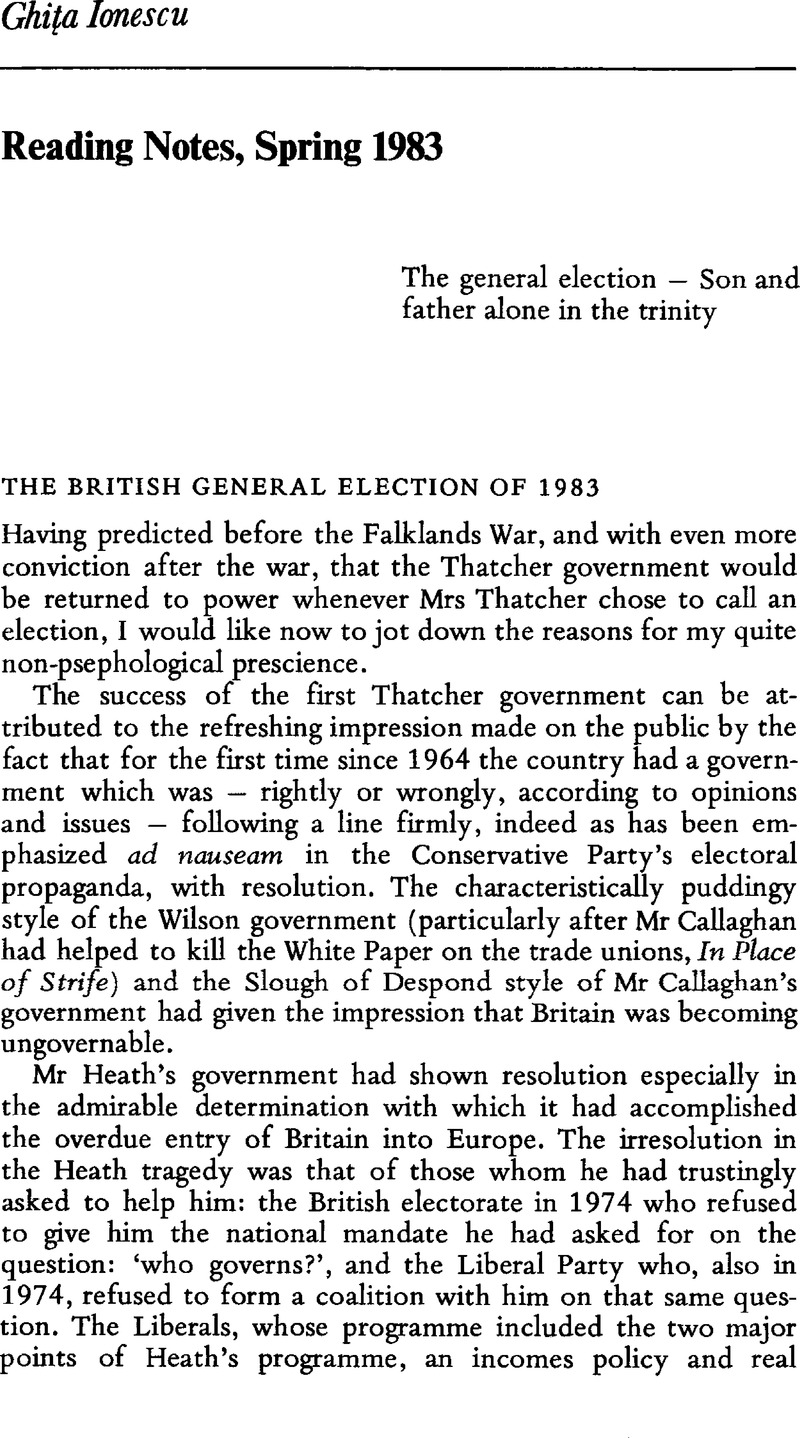Published online by Cambridge University Press: 28 March 2014

1 ‘Future historians may well regard the election of 1983 as a turning point in British political development, not because of the apparent landslide victory of the Tories, but because of the way in which the political map of Britain has been redrawn. Immediate post‐election comment has naturally focussed on the question ‐ who won? The most appropriate long‐term question may well be ‐who came second most often? The SDP/Liberal Alliance came first in 23 constituencies. Of the remaining 610 seats in Great Britain, the Alliance came second in just over half ‐in 312. The electoral landscape has been transformed.’ (Professor Hugh Berrington in the Sunday Telegraph, 12 June 1983.).
2 Cambridge University Press, 1983, 297 pp., $ 20.00.
3 ‘One must opt between making either a man or a citizen, for one cannot make both at the same time’ (Emile). ‘Either you give him [man] entirely to the state or you leave him entirely to himself’ (Du Contract Social). ‘En effet, chaque individu peut avoir comme homme une volonté particulière ou dissemblable à la volonté générale qu’il a comme citoyen… quiconque refusera d’obéir à la volonté générale y sera contraint par tout le corps; ce qui ne signifie autre chose sinon qu’on le forcera d’être libre’ (Du Contract Social, I. VII).
4 Quoted in Lively, J. and Rees, J., Utilitarian Logic and Principle, Oxford, 1979, pp. 56 and 73.Google Scholar